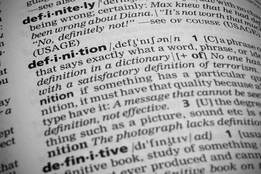By Heather Walton
 EDUCA’TION, noun [Latin educatio.] The bringing up, as of a child, instruction; formation of manners. education comprehends all that series of instruction and discipline which is intended to enlighten the understanding, correct the temper, and form the manners and habits of youth, and fit them for usefulness in their future stations. To give children a good education in manners, arts and science, is important; to give them a religious education is indispensable; and an immense responsibility rests on parents and guardians who neglect these duties. (http://webstersdictionary1828.com/Dictionary/education)
EDUCA’TION, noun [Latin educatio.] The bringing up, as of a child, instruction; formation of manners. education comprehends all that series of instruction and discipline which is intended to enlighten the understanding, correct the temper, and form the manners and habits of youth, and fit them for usefulness in their future stations. To give children a good education in manners, arts and science, is important; to give them a religious education is indispensable; and an immense responsibility rests on parents and guardians who neglect these duties. (http://webstersdictionary1828.com/Dictionary/education)
This is how Noah Webster defined education.
Today’s dictionary defines it this way:
Definition of educate
1a: to provide schooling for
//chose to educate their children at home
b: to train by formal instruction and supervised practice especially in a skill, trade, or profession
2a: to develop mentally, morally, or aesthetically especially by instruction
b: to provide with information : INFORM
//educating themselves about changes in the industry
3: to persuade or condition to feel, believe, or act in a desired way
//educate the public to support our position
What stands out as you examine these definitions?
There are quite a few differences, but what I notice most are two things, and I would venture to say that these are two sides of the same coin. First, there is a not-so-subtle shift in the view of education. In 1828, education included all aspects of child training, but today it is primarily limited to schooling. I am pleasantly surprised, though, that today’s Webster used the example, “chose to educate their children at home.” The fact that people can choose to educate their children at home, versus not educating their children at home, is telling. There was a time in our country’s history when all parents were expected to educate their children at home, and some outsourced the academic portion of education to the local school. Today the norm is to expect the school, and sometimes the church, to do the educating, and some parents also consciously choose to educate their children at home for some things, such as character training.
Another standout is that Noah Webster assumed parents would provide a “religious” education for their children, and what he meant by that was a Christian education. Often Webster employed Bible verses as examples in his dictionary.
Today’s definition does include moral training, but it’s not presented with the same importance as it was in the 1828 version. The older version seems to include academics but the emphasis is on child-rearing and formation of character. Today the emphasis is on academics, with an eye on career readiness. It’s not until the second part of the definition that moral training is referenced.
There is no accident here. These two facets are intertwined. As America gradually traded Christianity as its primary religion and basis of ethics and morality, for another religion, known as humanism, many words and concepts were redefined. It has been said that “the pen is mightier than the sword.” The signers of the Humanist Manifesto I would likely agree. In 1933, this group, which included the father of modern American education, John Dewey, set out to transform the culture, and they were successful at redefining the American way of thinking. These men, and their disciples, have successfully banished Christian ideals from the public square, and traded them in for the new religion of humanism. With a new paradigm comes new vocabulary.
Today’s idea of education typically brings up images of academics, which are relegated to their own sphere of life, and thought by most to be best left to professional educators. Students and families who practice religions other than humanism are to keep their ideas out of the schoolhouse, especially if their ideology is Christian. But this wasn’t so in the past. For the vast majority of Americans, everything fit within the paradigm of faith. Even those educated at school learned religion at school — yes, even at public school. Even more importantly, families understood the Deuteronomy 6 mandate for parents to teach their children diligently as they went about the business of daily life. Education was a natural part of life, and it didn’t merely incorporate academics. Character and habits were the top discipline, the Bible and life were the key curriculum, and the parents were answerable to God alone for their children’s upbringing.
There has been a dramatic shift in our culture’s definition of education, and this is reflected in the change in the dictionary entry.